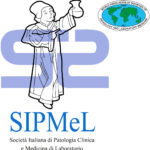
Do not use the determination of 25OH vitamin D (25OH-D) as a routine or screening test to determine the status of hypovitaminosis without a specific clinical indication.
According to documents produced by international and national regulatory bodies the measurement of 25OH-D should be reserved for:
– a small number of patients with persistent symptoms of profound asthenia, myalgias, diffuse or localised bone pain suspicious for osteomalacia or with predisposition to unmotivated falls (NHS 2018, NIH 2022);
– patients with established bone pathology such as osteoporosis, osteomalacia, Paget’s disease, osteogenesis imperfecta candidates for remineralisation therapy, patients in whom malabsorption is suspected, patients chronically taking drugs interfering with vitamin D metabolism, patients with elevated parathormone.
Sources
1. US Preventive Services Task Force; Krist AH, Davidson KW, Mangione CM, et al. Screening for vitamin D deficiency in adults: US Preventive Services Task Force Recommendation Statement. JAMA 2021;325:1436-42. DOI: 10.1001/jama.2021.3069.
2. NHS Prevention, Investigation and Treatment of Vitamin D Deficiency and Insufficiency in Adults. 2022: 1-8. https://surreyccg.res-systems.net/ PADFormularyV1/Content/Documents/2/Vit_D_guidelines_22v1.3.pdf (last accessed March 2024).
3. LeBoff MS, Chou SH, Ratliff KA, et al. Supplemental Vitamin D and incident fractures in midlife and older adults. N Engl J Med 2022;387:299-309. DOI: 10.1056/NEJMoa2202106.
4. Manson JE, Brannon PM, Rosen CJ, et al. Vitamin D deficiency - is there really a pandemic? N Engl J Med 2016;375:1817-20. DOI: 10.1056/NEJMp1608005.
5. AIFA. Nota 96 per la prescrizione di farmaci a base di vitamina D 2023 https://www.aifa.gov.it/documents/20142/1728113/nota-96.pdf (last accessed March 2024).
Download
PDFAttention. Please note that these items are provided only for information and are not intended as a substitute for consultation with a clinician. Patients with any specific questions about the items on this list or their individual situation should consult their clinician.


Recent Comments